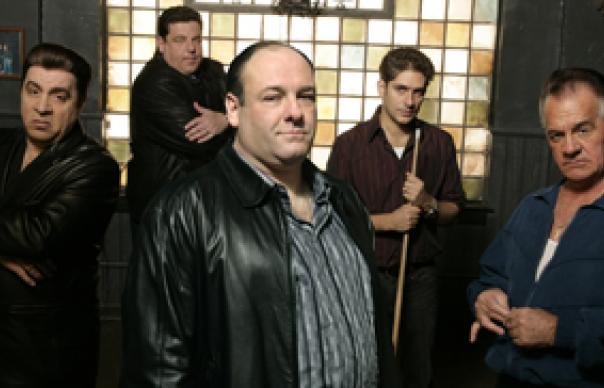If you really thought the final nine episodes of The Sopranos would bring convenient closure to the greatest TV drama series ever made, your head needs examining. After what happens in the penultimate instalment between Tony Soprano and Dr Melfi – the quack he’s been seeing since the ducks in his swimming pool started freaking him out in episode one, which was a great joke to start the thing rolling – she may be able to see you soon. Her rates are reasonable and her legs are great.
No, what was so typically terrific about these last shows was that they in every respect remained true to the virtues that had made The Sopranos for so long so compelling – even as you may have expected it to hasten towards its climax, it did what it has always done so brilliantly. It digressed.
There was no urgent housekeeping, no frenzied rush to tidy up errant plotlines, tie up all the loose ends and contrive an ending that brought everything to a well-groomed head. Moving at a familiar stately pace, it took its time to unravel, allowed us to fully indulge our fascination with these evidently repellent, monstrous people and their unspooling lives, crises looming on all fronts for just about everybody in sight. This way the tension grew incrementally, Tony’s darkening mood, gathering mistrust of even his closest confederates – Paulie, Sil, Christopher – and general brooding paranoia seeping poisonously into every narrative turn. Every time he gave one of these people one of those heavy-lidded looks you had come to feel nervous about, you expected them soon to turn up somewhere with bullet-holes for eyes.
Where other series might have roared towards a grand finale, packing in the action, going out noisily, The Sopranos, as was always the intention of creator David Chase, dared to be different, contradictory and loyal to itself and what had kept us watching it. And so these episodes were perhaps the darkest yet in a series that has been no stranger to grim things – the show dedicated to the lingering death from cancer of Johnny Sacks, which precipitates the final showdown between the Aprile and Lupertazzi crews, was unbearably painful viewing. As was, elsewhere, Uncle Junior’s continuing decline into pathetic dementia, plus the assorted mayhem that by the end has reduced the cast list considerably.
There was comedy, too – the “Cleaver” episode was up to a point generally hilarious and more than ever Tony and Paulie Walnuts were a wonderful double act, especially on their road trip to Florida, during which they bickered brilliantly. What shocked as much as ever was how quickly we would be reeled back into the central conflict – the power struggle that had simmered for as long as anyone could remember between New Jersey and New York, where loathsome Phil Leotardo by the series’ end had become boss, declaring war on the Jersey family: “Plain and simple, it’s over. We decapitate and we do business with whatever’s left.”
The very final scene, a family dinner in Holsten’s diner, Journey’s “Don’t Stop Believing” on the jukebox, had some viewers up in arms, but its provocative ambiguity seemed a perfect ending to me, Chase keeping us guessing to the very end, and beyond.
EXTRAS: Music Of The Sopranos feature, four episode commentaries, the making of Christopher’s movie, Cleaver!
ALLAN JONES


